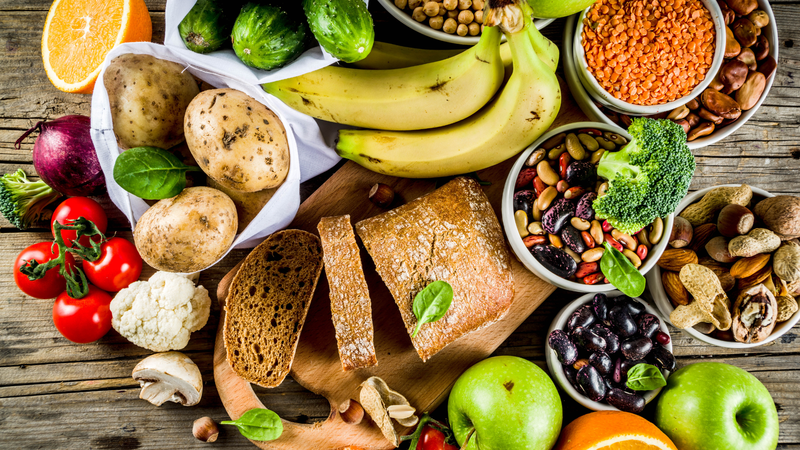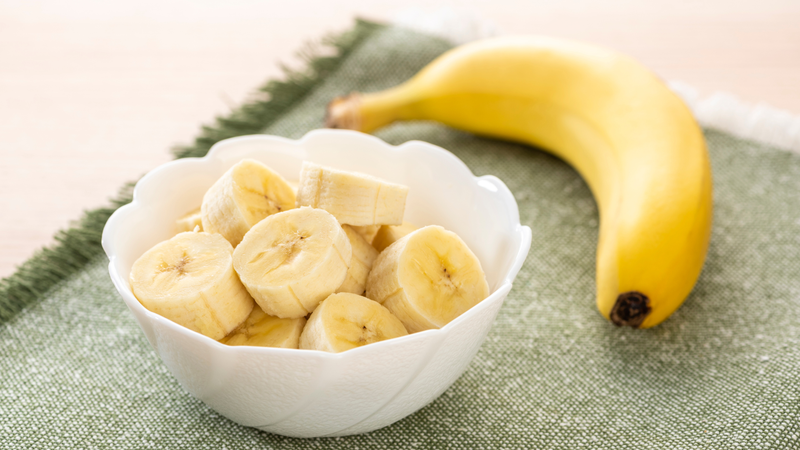Constipation is a common digestive problem in infants, especially from 7 months of age when the baby is in the early stages of getting used to solid foods. This condition not only makes the baby feel uncomfortable but also causes anxiety for parents when faced with the question: “What should a 7-month-old baby eat when constipated?”. To effectively solve the problem, parents need to clearly understand the cause and choose foods that best support the baby’s digestive system.
In the journey of raising children, parents cannot avoid worrying about their child’s digestive problems, especially constipation. For 7-month-old babies, supplementing solid foods can be the cause of this condition. That is why many parents wonder “What should a 7-month-old baby eat to improve constipation?”. Let’s learn about effective nutritional solutions to help your baby digest more easily and develop healthily in the following article!
Bowel habits of breastfed and formula-fed babies
Before determining whether a baby is constipated, parents need to closely observe their baby’s bowel habits. Babies who are exclusively breastfed usually have soft, yellow stools, and the frequency of bowel movements can vary from a few times a day to just once every 7-10 days. This frequency will vary depending on the age and diet of each child.
For formula-fed babies, stools are usually thicker, dark brown or camel-colored, more paste-like, and have a more unpleasant odor than babies who are exclusively breastfed. The frequency of bowel movements also gradually decreases after the first few weeks, from five times a day to once a day as the baby gets older.

Infants using formula milk often have thicker, brown stools.
Causes of constipation in 7-month-old babies
Constipation in babies can start to appear when they start eating solid foods. Changes in diet and consumption of solid foods are common causes. Below are the main causes of constipation in 7-month-old babies that parents need to pay attention to.
The digestive system must get used to solid foods
Starting to feed your baby solid foods can easily cause the digestive system to not be used to new foods. This is the stage when the baby’s body must learn to digest solid foods. Parents should still prepare soft, easy-to-digest foods and gradually increase the thickness to help the baby’s stomach adapt in time.

Constipation is one of the most common digestive problems in infants.
Change the amount of liquid food absorbed
Reducing the amount of liquid absorption can make stools harder and more difficult to pass. During the time when children are eating solid foods, parents should supplement more water to balance with solid foods. In addition, if the baby is teething or is sick, the baby will drink less water, making constipation more serious.
Lack of fiber
Lack of fiber is a common cause when children start eating solid foods. The child’s digestive system needs time to adapt to foods containing fiber, so the ability to decompose and absorb is greatly limited. Parents should monitor the amount of fiber and supplement enough water to help the baby digest more easily during this period.

Lack of fiber is a common cause of constipation in children.
What should a 7-month-old baby eat if he or she is constipated?
When a 7-month-old baby is constipated, adjusting the diet can help improve the condition. Here are some foods to add to your baby’s diet:
Sweet potatoes
Sweet potatoes are rich in fiber and vitamins, which help soften stools and make them easier to digest. You can steam or bake sweet potatoes, then mash them and mix them with breast milk or formula. Sweet potatoes not only help relieve constipation but also provide energy and nutrition for your baby. You can try combining sweet potatoes with other vegetables to create a more varied and attractive dish for your baby.
Malabar spinach
Malabar spinach is rich in fiber and vitamins, which help stimulate intestinal motility. You can cook porridge or baby food with Malabar spinach. Make sure the vegetables are cooked until soft and mashed so that your baby can eat and digest them easily. In addition, you can also combine Malabar spinach with other foods such as chicken and beef to increase nutrition for your baby.
Ripe bananas
Bananas are easy to digest and rich in fiber, helping to improve constipation. You can puree bananas and feed them directly to your baby or mix them with baby food. Bananas also provide a lot of potassium, helping to balance electrolytes in your baby’s body. To change the taste, you can combine bananas with yogurt or other fruits such as apples and pears.

Bananas are rich in potassium and fiber, which helps improve constipation.
Avocado
Avocado is a fruit rich in fiber and healthy fats, which helps your child’s digestive system work better. You can puree the avocado and feed it directly to your child or mix it with other foods such as yogurt or baby cereal. Avocado also contains many vitamins and minerals, helping to improve your baby’s overall health.
Yogurt
Yogurt contains probiotics that help balance intestinal microflora, aid digestion, and reduce constipation. You can feed your child unsweetened yogurt or yogurt specifically for young children. Yogurt also provides calcium and protein, which are good for your child’s development. To enrich the diet, you can combine yogurt with fruits such as bananas, apples, or pears.
In addition, make sure your child is well hydrated and encourage him or her to exercise gently to aid digestion. If constipation persists, you should consult a doctor for appropriate treatment.
The above article has provided us with a lot of useful information about constipation in 7-month-old babies. From how to recognize it to the causes and foods that can help relieve constipation in babies.





